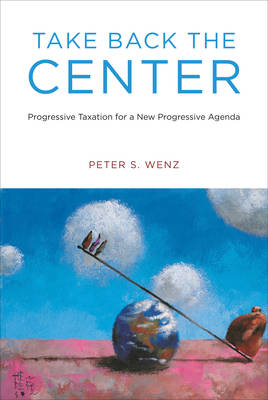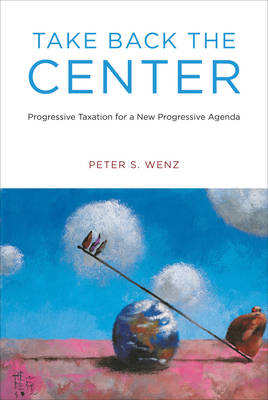
- Retrait gratuit dans votre magasin Club
- 7.000.000 titres dans notre catalogue
- Payer en toute sécurité
- Toujours un magasin près de chez vous
- Retrait gratuit dans votre magasin Club
- 7.000.0000 titres dans notre catalogue
- Payer en toute sécurité
- Toujours un magasin près de chez vous
Description
Reality-based arguments against right-wing fantasies: the case for reducing income inequality, rebuilding our infrastructure, investing in education, and putting people back to work.
Midcentury America was governed from the center, a bipartisan consensus of politicians and public opinion that supported government spending on education, the construction of a vast network of interstate highways, healthcare for senior citizens, and environmental protection. These projects were paid for by a steeply progressive tax code, with a top tax rate at one point during the Republican Eisenhower administration of 91 percent. Today, a similar agenda of government action (and progressive taxation) would be portrayed as dangerously left wing. At the same time, radically anti-government and anti-tax opinions (with no evidence to support them) are considered part of the mainstream. In Take Back the Center, Peter Wenz makes the case for a sane, reality-based politics that reclaims the center for progressive policies. The key, he argues, is taxing the wealthy at higher rates. The tax rate for the wealthiest Americans has declined from the mid-twentieth-century high of 91 percent to a twenty-first-century low of 36 percent--even as social programs are gutted and the gap betweeen rich and poor widens dramatically.
Ever since Ronald Reagan famously declared that government was the problem and not the solution, conservatives have had an all-purpose answer to any question: smaller government and lower taxes. Wenz offers an impassioned counterargument. He explains the justice of raising the top tax rates significantly, making a case for less income inequality (and countering society's worship of the wealthy), and he offers suggestions for how to spend the increased tax revenues: K-12 education, tuition relief, transportation and energy infrastructure, and universal health care. Armed with Wenz's evidence-driven arguments, progressives can position themselves where they belong: in the mainstream of American politics and at the center of American political conversations, helping their country address a precipitous decline in equality and quality of life.
Midcentury America was governed from the center, a bipartisan consensus of politicians and public opinion that supported government spending on education, the construction of a vast network of interstate highways, healthcare for senior citizens, and environmental protection. These projects were paid for by a steeply progressive tax code, with a top tax rate at one point during the Republican Eisenhower administration of 91 percent. Today, a similar agenda of government action (and progressive taxation) would be portrayed as dangerously left wing. At the same time, radically anti-government and anti-tax opinions (with no evidence to support them) are considered part of the mainstream. In Take Back the Center, Peter Wenz makes the case for a sane, reality-based politics that reclaims the center for progressive policies. The key, he argues, is taxing the wealthy at higher rates. The tax rate for the wealthiest Americans has declined from the mid-twentieth-century high of 91 percent to a twenty-first-century low of 36 percent--even as social programs are gutted and the gap betweeen rich and poor widens dramatically.
Ever since Ronald Reagan famously declared that government was the problem and not the solution, conservatives have had an all-purpose answer to any question: smaller government and lower taxes. Wenz offers an impassioned counterargument. He explains the justice of raising the top tax rates significantly, making a case for less income inequality (and countering society's worship of the wealthy), and he offers suggestions for how to spend the increased tax revenues: K-12 education, tuition relief, transportation and energy infrastructure, and universal health care. Armed with Wenz's evidence-driven arguments, progressives can position themselves where they belong: in the mainstream of American politics and at the center of American political conversations, helping their country address a precipitous decline in equality and quality of life.
Spécifications
Parties prenantes
- Auteur(s) :
- Editeur:
Contenu
- Nombre de pages :
- 312
- Langue:
- Anglais
Caractéristiques
- EAN:
- 9780262538671
- Date de parution :
- 24-08-12
- Format:
- Livre broché
- Format numérique:
- Trade paperback (VS)
- Dimensions :
- 137 mm x 203 mm
- Poids :
- 331 g

Les avis
Nous publions uniquement les avis qui respectent les conditions requises. Consultez nos conditions pour les avis.






